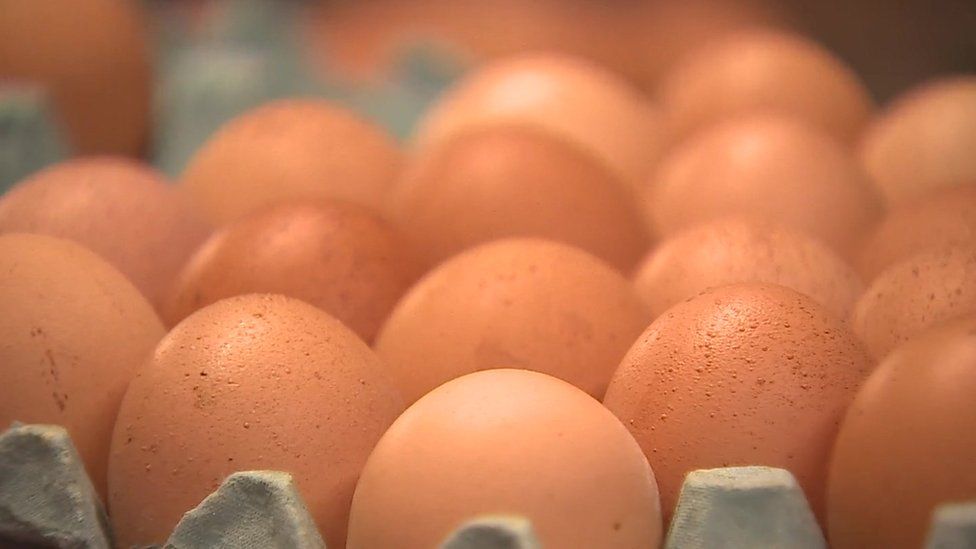ARTICLE AD BOX

Egg farmers are reducing flock sizes or leaving the industry due to running costs making their businesses unviable, a farming industry body has warned.
The British Free Range Egg Producers Association (BFREPA) said many of its members were losing money due to high chicken feed prices and energy costs.
Farmers have called for a 40p increase for a dozen eggs to help meet costs.
But supermarkets said they were "constrained" by how much cost they could pass onto customers.
Farmers claim that despite the price of a dozen eggs rising by about 45p in the supermarkets since March, they've only received between 5p to 10p of that increase.
Ioan Humphreys, an egg farmer from Powys in Wales said in a social media video that supermarkets were "refusing" to pay farmers a "fair price" for their produce at a time when costs had "skyrocketed" with feed, electric and the price of new birds.
Image source, IoanHumphreys
"We physically can't afford to produce these eggs. Currently there has been eight million less free-range hens ordered for next year's flocks," he said.
"So that's just under eight million eggs, every day that we are not going to be producing. We are already three million eggs short of being self-sufficient [as a country]."
Like households, farmers have also been hit by soaring energy costs in recent months.
They have also had to fork more for wheat, a key ingredient in chicken feed, which has spiked as a result of the Ukraine war, with both Russia and Ukraine producing about 30% of the global supply.
As well as rising costs, farmers have been hit by the country's largest ever avian influenza outbreak, which has led to millions of birds being killed or culled in the past 12 months.
All poultry and captive birds in England are required to be kept indoors, according to government guidelines, which has meant eggs in shops being labelled as "barn eggs" due to birds being kept inside for more than 16 weeks.
Farmers have previously warned the UK could face an egg shortage if retailers do not start paying more.
However, the Department Environment, Food and Rural Affairs said there was "currently no shortage of eggs".
"We understand the difficulties the bird flu outbreak is causing for farmers, however the laying hen population is approximately 38 million so it's unlikely to affect the overall supply," a statement said.
BFREPA said a survey of 157 of its members last week found 33% had either reduced or paused production of egg farming in some way.
Ben Pike, a spokesman for the trade body, said bird flu was a "contributing factor" in egg farmers struggling, but added pressure from prices was "probably a greater factor at the moment".
Kevin Coles, of the British Egg Industry Council, said he believed there were issues in terms of egg availability, but added he didn't think it was a "crisis".
"There are a lot of pressures on farmers at the moment, avian influenza being one, costs another, and demand remains strong - consumers want to buy eggs," he added.
The British Retail Consortium (BRC), which represents supermarkets, said bird flu had caused some disruption to egg supplies, but added retailers were trying to minimise the impact on customers.
"Retailers have long-standing, established relationships with their suppliers and know how important maintaining these are for their customers and businesses," said Andrew Opie, director of food and sustainability at the BRC.
"Supermarkets source the vast majority of their food from the UK and know they need to pay a sustainable price to egg farmers but are constrained by how much additional cost they can pass onto consumers during a cost-of-living crisis."

 2 years ago
37
2 years ago
37








 English (US) ·
English (US) ·